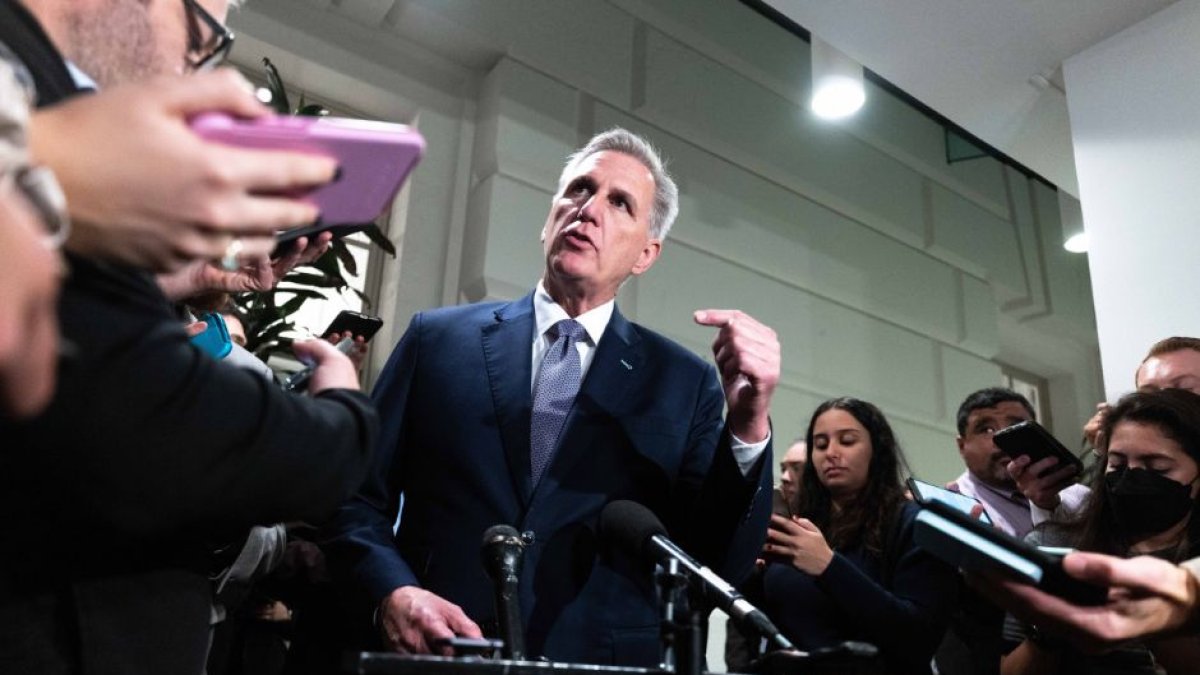Democrat praises McCarthy despite voting in favor of his removal as speaker
While Democratic Rep. Steny Hoyer praised the Californian, Republican representatives have been pointing fingers over the reduction of their majority in the House.

(Cordon Press)
"His ouster from the speakership and his decision to retire from the House are the product of a Congress in which polarization has become the norm and trust the exception," wrote Rep. Steny Hoyer (D-Md.) about Kevin McCarthy, after the latter announced he would be leaving his seat. The Democrat forgot or avoided mentioning in his press release that he himself voted to remove McCarthy from the position of speaker. Hoyer was one of 208 Democratic representatives who joined Republican Matt Gaetz’s initiative to strip the gavel from the California Republican.
Gaetz presented the impeachment motion after then-Speaker McCarthy approved, with the support of Democratic representatives, a short-term spending bill to avoid a government shutdown. Although Hoyer voted in favor of the removal, which Gaetz claimed was due to McCarthy's negotiations with the Democratic Party, Hoyer dedicated a few words of praise to McCarthy’s bipartisanship:
Less complimentary has been the opinion of Jaime Harrison, president of the Democratic National Congress: "In his short time as speaker, Kevin McCarthy managed to plunge the People’s House into chaos in the name of serving one person and one person alone: Donald Trump." If Gaetz accused McCarthy of serving the Democrats, Harrison, McCarthy's frequent critic, reproached him for exactly the opposite:
Republicans vs. Republicans
On the other side of the aisle, Rep. Marjorie Taylor Greene criticized her party and House colleagues for reducing thier majority heading into 2024. Taylor Greene blamed both the Freedom Caucus representatives, who pushed for the first removal of a House speaker in history, and the 105 Republicans who voted to oust George Santos:
On Thursday, Gaetz joked about McCarthy's resignation in a post on X (formerly Twitter): "McLeavin'." When a user accused him of reducing the Republican majority, the conservative responded that it was not his fault, but McCarthy's: "I didn’t resign."
Matt Rosendale, another of the eight Republicans who voted against McCarthy, was accused of working for the Democrats by the National Republican Senatorial Committee (NRSC). "A lot of people are starting to wonder if Matt Rosendale is a plant from the Democrats," his spokesman Mike Berg said in a statement about the former speaker's retirement.
In quotes to Newsweek, Rosendale hit back at the NRSC, accusing it of having "sold the American people out for decades." He also noted that if they really wanted to regain the majority, "they would be dedicating their resources to exposing Jon Tester instead of attacking the strongest conservative in the state of Montana."
What will a slimmer majority look like?
The Republican Party's advantage in the House currently allows it only three rebel votes, a majority that could be reduced even further, for example, if the Democrats manage to fill George Santos' vacancy.
Having less margin could, some lawmakers fear, give more power to every Republican who wants to go rogue. One of them is Rep. Kevin Hern (R-Okla.), who said in conversation with Axios:
His Wisconsin counterpart Bryan Steil disagrees. In statements to the same media outlet, he stated that the majority was already compromised, so it would not mean major changes. "Is it that much tougher? No. Because we have a group that's bigger than three that has been opposed to a lot of the things we want to do here."

























